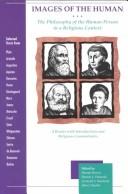| Listing 1 - 5 of 5 |
Sort by
|

ISBN: 1282042254 9786612042256 1442683511 9781442683518 9781282042254 0802047343 9780802047342 1442614900 Year: 2000 Publisher: Toronto
Abstract | Keywords | Export | Availability | Bookmark
 Loading...
Loading...Choose an application
- Reference Manager
- EndNote
- RefWorks (Direct export to RefWorks)
A century after the appearance of his famous works on religion, William James's philosophy of religion is still the subject of lively debate. James's numerous opponents have repeatedly charged him with abdication of intellectual responsibility, arguing that he advocated the adoption of religious belief without conclusive evidence on its behalf. In this book Hunter Brown shows that critics have consistently distorted James's view in the process of arriving at such charges. The central argument presented here is that critics have failed to look at James's philosophical vision as a whole. This failure is addressed by Brown as he locates James's thought on religion within the wider scope of Radical Empiricism's analyses of experience in general, and subject-object relations in particular. Brown presents the main interpretations and critiques of James's work, and shows that James's views of religious experience, evil and power, human responsibility, and ethical concerns do not in fact lapse into subjectivism and fideism. This penetrating study not only builds upon a long tradition of James scholarship but pushes through to new levels of inquiry and insight. It is a major work that will generate renewed discussion of James's thought along with the approaches and concerns emerging from it.
Religion --- Empiricism. --- Pragmatism. --- Idealism --- Knowledge, Theory of --- Philosophy --- Philosophy, Modern --- Positivism --- Realism --- Utilitarianism --- Experience --- Reality --- Truth --- Rationalism --- Philosophy. --- James, William, --- Dzhems, Uilʹi︠a︡m, --- Jaymz, Vīlyām, --- جىمز، وىلىام --- Empiricism --- Pragmatism --- 291.1 --- 291.1 Godsdienstfilosofie --- Godsdienstfilosofie
Book
ISBN: 9780773556591 0773556591 9780773556584 0773556583 9780773557635 9780773557642 0773557636 0773557644 Year: 2019 Publisher: Montreal Kingston London Chicago
Abstract | Keywords | Export | Availability | Bookmark
 Loading...
Loading...Choose an application
- Reference Manager
- EndNote
- RefWorks (Direct export to RefWorks)
Philosophy has traditionally engaged the problem of why there is something rather than nothing as a normal causal question. Such an approach, Hunter Brown proposes in Grace and Philosophy, does not do justice to the deep wonder and astonishment that the existence of the world elicits so widely among human beings. Such wonder has often been expressed in artistic and literary ways, including especially the language of grace, which captures the striking gratuity of existence and the spontaneous, grateful response so often evoked by it. Since the modern period, however, Brown argues, there has been a questionable narrowing of philosophy that privileges formal reasoning and theory over an engagement of immediate experience. Detached expertise, impersonal scholarship, and preoccupation with data have swept aside simple wonderment about the extraordinary gratuity of existence, and the remarkable ways in which such wonderment has been expressed. Against the grain of such widespread developments Grace and Philosophy proposes a perspective that maintains a place of importance in philosophy for such wonder and for the many forms in which it has manifested itself.
Grace (Aesthetics) --- Grace (Theology) --- Life --- Wonder --- Philosophy

ISBN: 0829408258 0829408266 Year: 1995 Publisher: Chicago (Ill.): Loyola
Abstract | Keywords | Export | Availability | Bookmark
 Loading...
Loading...Choose an application
- Reference Manager
- EndNote
- RefWorks (Direct export to RefWorks)
Agent (Philosophy) --- Human beings --- Philosophical anthropology --- Theological anthropology --- Christianity
Book
ISBN: 0773557636 Year: 2019 Publisher: Montreal : McGill-Queen's University Press,
Abstract | Keywords | Export | Availability | Bookmark
 Loading...
Loading...Choose an application
- Reference Manager
- EndNote
- RefWorks (Direct export to RefWorks)
Philosophy has traditionally engaged the problem of why there is something rather than nothing as a normal causal question. Such an approach, Hunter Brown proposes in Grace and Philosophy, does not do justice to the deep wonder and astonishment that the existence of the world elicits so widely among human beings. Such wonder has often been expressed in artistic and literary ways, including especially the language of grace, which captures the striking gratuity of existence and the spontaneous, grateful response so often evoked by it. Since the modern period, however, Brown argues, there has been a questionable narrowing of philosophy that privileges formal reasoning and theory over an engagement of immediate experience. Detached expertise, impersonal scholarship, and preoccupation with data have swept aside simple wonderment about the extraordinary gratuity of existence, and the remarkable ways in which such wonderment has been expressed. Against the grain of such widespread developments Grace and Philosophy proposes a perspective that maintains a place of importance in philosophy for such wonder and for the many forms in which it has manifested itself.
Digital
ISBN: 9781442683518 9780802047342 Year: 2016 Publisher: Toronto, Ont. University of Toronto Press
Abstract | Keywords | Export | Availability | Bookmark
 Loading...
Loading...Choose an application
- Reference Manager
- EndNote
- RefWorks (Direct export to RefWorks)
| Listing 1 - 5 of 5 |
Sort by
|

 Search
Search Feedback
Feedback About UniCat
About UniCat  Help
Help News
News